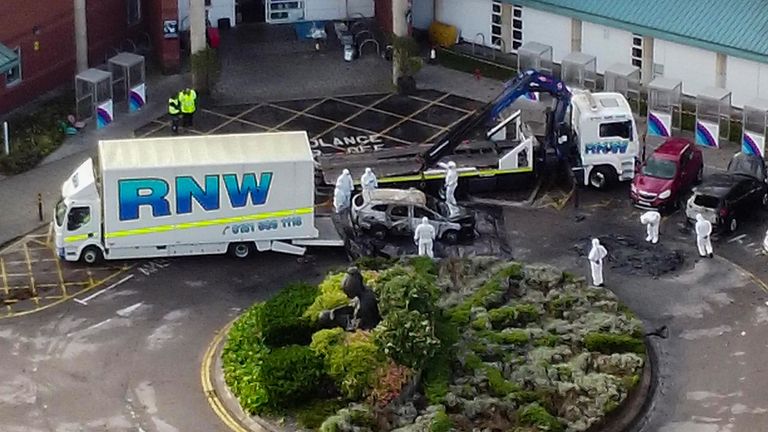Liverpool terror attack: Emad al Swealmeen formally identified as person killed in hospital blast
Counter-terrorism police have formally identified Emad al Swealmeen as the person who died in the explosion at Liverpool Women’s Hospital.
They say they had also traced a relative and would be speaking to them on Thursday.
Al Swealmeen was killed when a suspected improvised explosive device detonated inside a taxi on Remembrance Sunday.
He was the only person who died, while the driver managed to run from the smoking car and was relatively unscathed.
Assistant Chief Constable Russ Jackson of Counter Terrorism Police North West confirmed that al Swealmeen is believed to have been born in Iraq and most recently lived at Rutland Avenue.
“The scene at the hospital remains in place however the car has been removed and officers continue to conduct fingertip searches,” said Mr Jackson.
“It is expected that sections will be released in the coming days, but the scene will not be fully released until at least Sunday.
“The addresses at Rutland Avenue and Sutcliffe Street continue to be searched and significant items have been found at both addresses.
“Rutland Avenue remains our main focus.”
A post-mortem examination confirmed al Swealmeen’s cause of death as “injuries sustained from the fire and explosion”.
Police said on Wednesday that they believe he began making “relevant purchases” for his attack in April.
They are also investigating “episodes of mental illness” that he’s believed to have had.
Witnesses have been describing how they thought the blast was an accident and tried to save al Swealmeen.
Delivery driver Liam Spencer said he tried to “grab” the attacker from the car after it exploded.
“I went to grab him but he engulfed in flames very quickly. I couldn’t reach a hold of him without setting myself on fire,” he told the BBC.
Darren Knowles, a security guard, also rushed to help taxi driver David Perry after he fled the vehicle, and said he was screaming: “Someone has blown me up. I want my wife.”
The attacker, 32, was a rejected asylum seeker who converted to Christianity and is believed to have arrived in the UK in 2014.
He was undergoing a fresh appeal at the time of his death.
Concerns have been raised that some asylum seekers in Liverpool have been faking their religious conversion to try to benefit their application.
Sky News revealed that the former lay minister who gave a home to al Swealmeen was aware that his Bible meetings were being targeted by Muslims pretending to convert.
The UK’s terror threat level has been raised to severe – meaning an attack is “highly likely” – though police have stressed there is no specific intelligence another attack is imminent.
Source: Read Full Article



